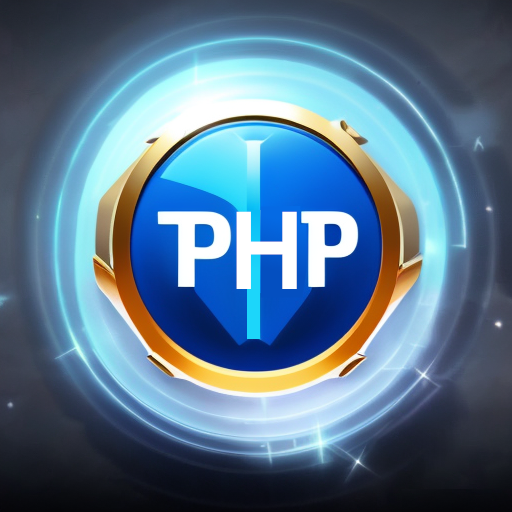Are you considering a career as a Full Stack Web Developer? This versatile role offers a wide range of benefits, including increased salary potential, in-demand skills, and the ability to work on a variety of projects. In this post, we'll discuss the career benefits of becoming a Full Stack Web Developer, how to get started for free, salary range estimates for Full Stack Web Developers, what is required of a Full Stack Web Developer vs a Standard Web Developer, and next steps to get started today.
Career benefits of becoming a Full Stack Web Developer:
- High demand: Full Stack Web Developers are in high demand as they can work on both front-end and back-end development tasks.
- Increased salary potential: Full Stack Web Developers earn higher salaries than standard Web Developers as they have a wider range of skills.
- Versatility: Full Stack Web Developers can work on a variety of projects, from small websites to large-scale web applications.
- Job satisfaction: Full Stack Web Developers can see their projects from start to finish and have a greater sense of ownership over their work.
How to get started for free:
- Choose a programming language: Start with a programming language like HTML, CSS, and JavaScript to learn the basics of web development.
- Learn front-end development: Learn front-end development by using frameworks like React, Angular, or Vue.js.
- Learn back-end development: Learn back-end development by using technologies like Node.js, Ruby on Rails, or Django.
- Practice: Build small projects to practice and apply your knowledge of both front-end and back-end development.
- Join online communities: Join online communities like Reddit, Stack Overflow, and Github to ask questions, share knowledge, and get feedback on your projects.
Salary range estimates for Full Stack Web Developers: According to Payscale, Full Stack Web Developers earn an average salary of $74,000 per year, with entry-level developers earning around $57,000 per year and senior developers earning over $118,000 per year.
What is required of a Full Stack Web Developer vs a Standard Web Developer: Full Stack Web Developers are responsible for both front-end and back-end development, which means they must have knowledge of both. They must also have a strong understanding of databases, servers, and hosting environments. Standard Web Developers, on the other hand, are responsible for either front-end or back-end development and may specialize in one area.
Next steps to get started today:
- Set a goal: Decide what you want to achieve with Full Stack Web Development, whether it's building a website or developing a web application.
- Learn more: Continue learning by exploring advanced topics like database design, server-side rendering, and cloud computing.
- Build a portfolio: Build a portfolio to showcase your skills and projects. You can use platforms like GitHub to store your projects and share them with potential employers.
- Apply for jobs: Once you have a solid portfolio and some experience, start applying for Full Stack Web Developer jobs.
In conclusion, becoming a Full Stack Web Developer offers a range of career benefits, including increased salary potential, versatility, and job satisfaction. With the availability of free online resources and the growing demand for Full Stack Web Developers, now is the perfect time to get started. Start your journey today and see where Full Stack Web Development can take you!
Are you looking for a career in the tech industry? Becoming a PHP Developer might be the perfect choice for you! Not only is PHP one of the most popular programming languages, but it also offers numerous benefits for aspiring developers. In this post, we'll discuss the benefits of becoming a PHP Developer, how to get started for free, salaries for early level PHP developers, and next steps to get started today.
Benefits of becoming a PHP Developer:
- High demand: PHP is widely used in web development, making PHP developers highly in demand in the job market.
- Wide range of job opportunities: As a PHP developer, you can work for various industries like healthcare, e-commerce, education, and more.
- Easy to learn: Compared to other programming languages, PHP is relatively easy to learn, making it a great choice for beginners.
- Open source community: PHP has a large and active open source community, which means you can easily access resources, libraries, and frameworks to aid in your development process.
How to get started for free:
- Install a local development environment: To start coding PHP, you need a local development environment. XAMPP and WAMP are two popular choices for Windows users, while MAMP is a popular choice for Mac users.
- Learn the basics: To get started with PHP, learn the basics such as syntax, variables, data types, and loops. You can find many free online resources to learn PHP, such as Codecademy and W3Schools.
- Practice: Start practicing your PHP skills by building small projects, such as a contact form or a simple blog.
- Join online communities: Join online communities like Reddit and Stack Overflow to ask questions, share knowledge, and get feedback on your projects.
Salaries for early level PHP developers: The salary for early level PHP developers can vary depending on the location and the company they work for. According to Payscale, the average salary for an entry-level PHP Developer in the United States is $52,000 per year. However, this can increase to $96,000 per year with more experience and expertise.
Next steps to get started today:
- Set a goal: Decide on what you want to achieve as a PHP developer, whether it's building a website or getting a job.
- Learn more: Continue learning by exploring advanced topics like object-oriented programming and database management.
- Build a portfolio: Build a portfolio to showcase your skills and projects. You can use platforms like GitHub and Bitbucket to store your projects and share them with potential employers.
- Apply for jobs: Once you have a solid portfolio and some experience, start applying for PHP Developer jobs.
In conclusion, becoming a PHP Developer can offer a rewarding career path with many benefits. With the easy accessibility of online resources and the growing demand for PHP developers, there has never been a better time to get started. Start your journey today and see where your PHP skills can take you!



